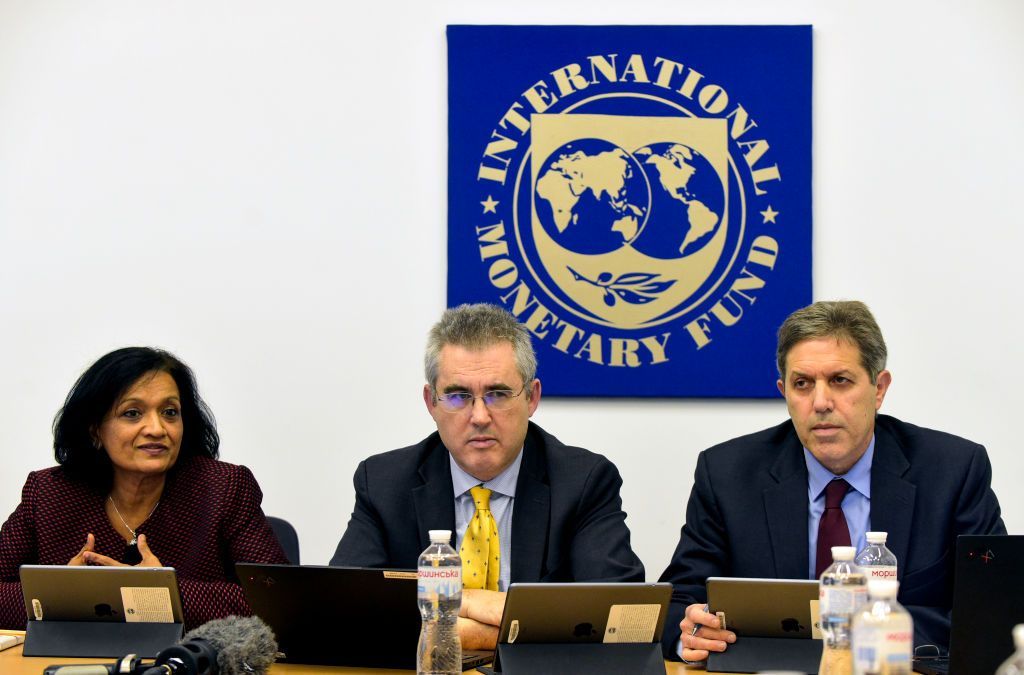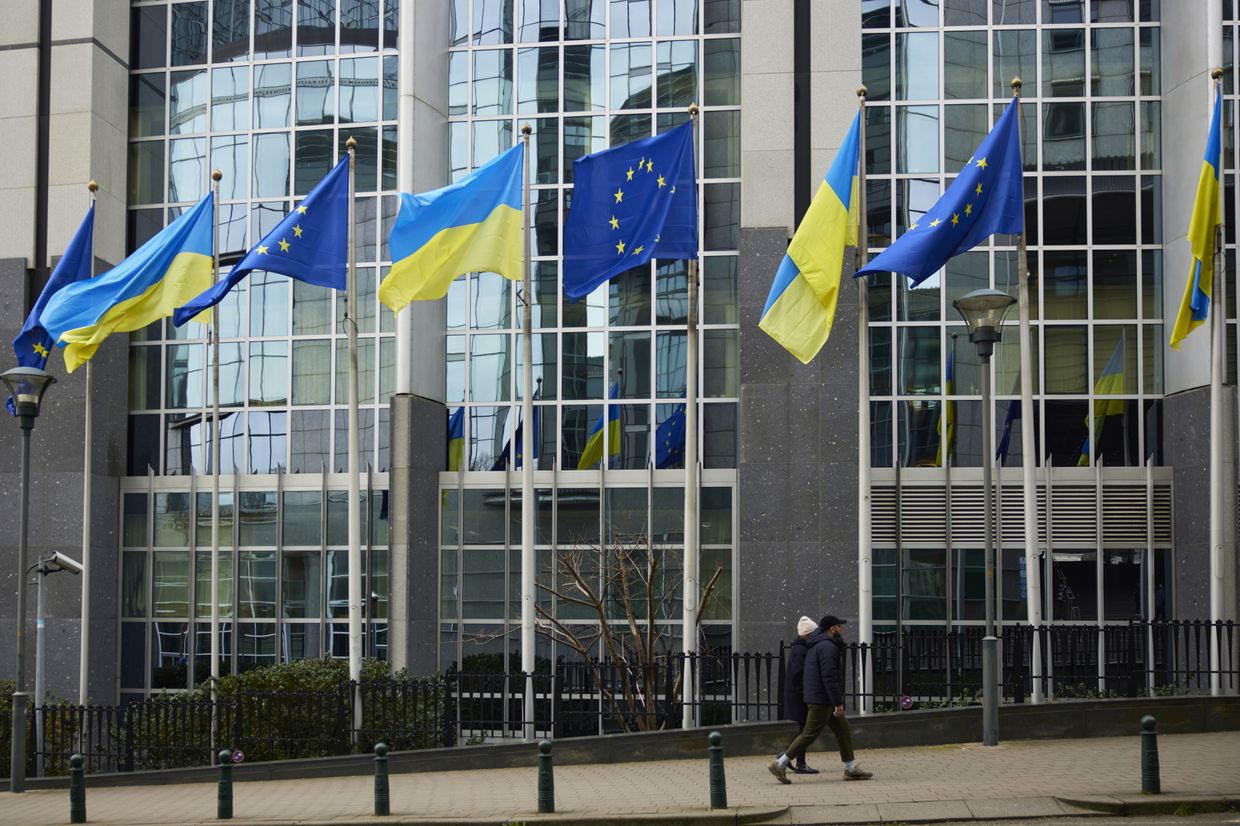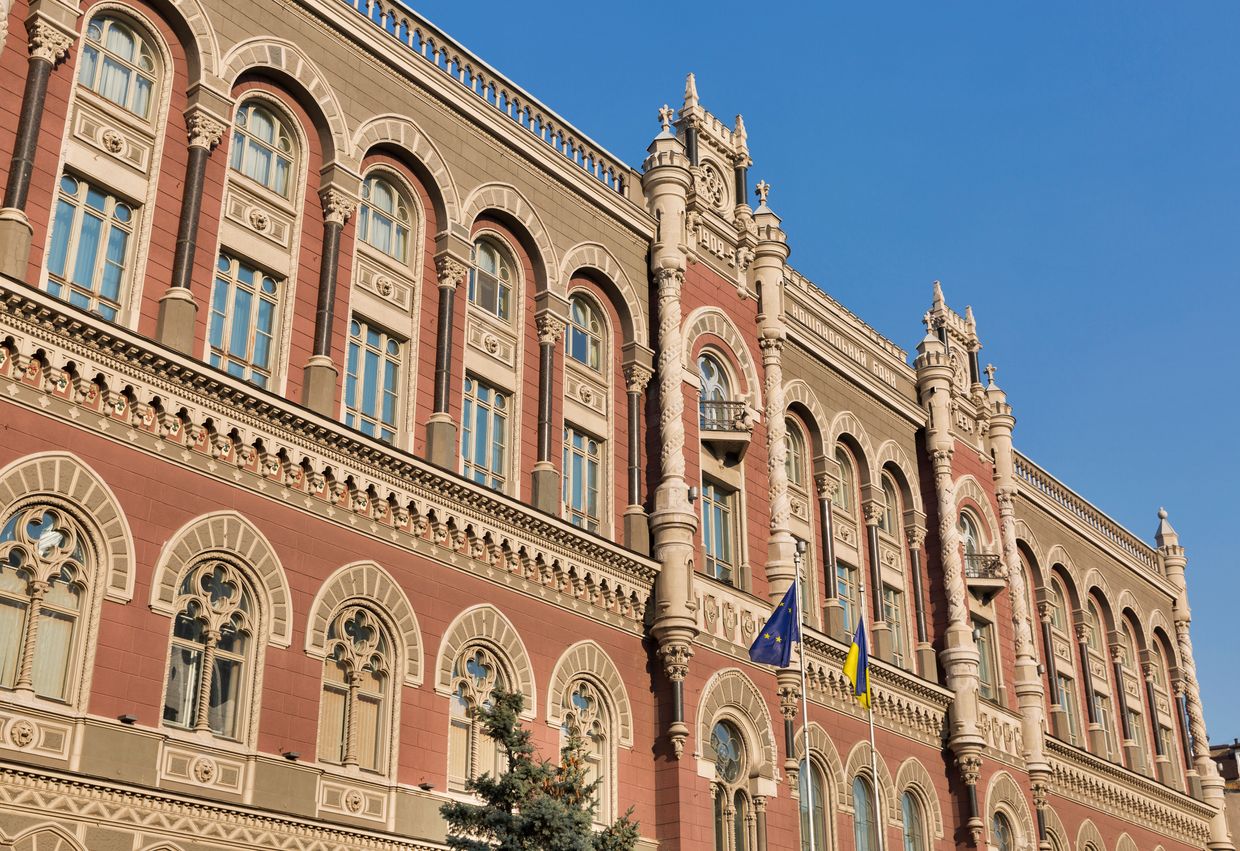MP Yaroslav Zhelezniak: Developments in Ukraine’s parliament on economic reforms, international obligations — Issue 58

Editor’s note: This is issue 58 of Ukrainian lawmaker Yaroslav Zhelezniak’s weekly “Ukrainian Economy in Brief” newsletter, covering events from May 27–June 2, 2024. The digest highlights steps taken in the Ukrainian parliament related to business, economics, and international financial programs.
The Kyiv Independent is republishing with permission.
The IMF benchmarks in focus
The draft law on restart of the Bureau of Economic Security wasn’t included in the parliamentary agenda for this week.
This week the Verkhovna Rada probably won’t consider draft law #10439 in the second reading on relaunching the Bureau of Economic Security. Most likely the Committee on Finance, Tax and Customs Policy will consider the draft law on June 11 and lawmakers will vote for it during plenary meetings scheduled for June 18-21.
Analysts of the Ukrainian consortium RRR4U warn that there might be a potential problem with the implementation of the structural benchmark #23 regarding the relaunch of the bureau in the Memorandum with the International Monetary Fund (IMF) as the deadline is set for the end of June. This conclusion was published in the recent issue of the monthly “Monitoring of Implementation of the IMF program and the EU assistance” prepared by the consortium RRR4U, which members are well-known and respected NGOs Center for Economic Strategy, Institute for Economic Research and Policy Consulting, Institute of Analytics and Advocacy and DiXi Group.
Obligations to the EU
The government adopted the climate strategy up to 2035.
Last week the Cabinet of Ministers (CMU) adopted the strategy for the development and implementation of state policy in the field of climate change up to 2035. According to the official statement, the strategy was developed in line with the policy of international organizations. The CMU also adopted the plan of measures to implement the Strategy in 2024-2026. Moreover, the CMU submitted to the parliament draft law #11310 on the legal and organizational foundations of state climate policy.
Other key economic issues
The Tax Committee recommended draft laws on establishing a bank of development.
The Committee on Finance, Tax and Customs Policy recommended for the first reading draft laws #11238 and #11239 on establishing the National Development Agency (submitted by Danylo Hetmantsev and other lawmakers). The National Development Agency is aimed to be a state specialized institution with a special mandate for the recovery and structural transformation of the economy, which will implement lending programs for the recovery of the country. Authors of draft laws explain that the National Development Agency is designed as an analogue of the German KfW.
The Verkhovna Rada will consider these draft laws in the first reading during plenary meetings scheduled for June 4-6.
The parliament still hasn’t received proposals of candidates for vacant positions in the Cabinet of Ministers.
The Verkhovna Rada must appoint a new infrastructure minister and minister of regional development, but it still didn’t receive proposals to vote for.
As we reported in Issue 57, the most likely candidates for the positions in the CMU are Oleksiy Kuleba, deputy head of the Office of the President of Ukraine, and Oleksiy Chernyshov, CEO of Naftogaz. Oleksiy Kuleba may become the minister of regional development while Chernyshov may head the Infrastructure Ministry. Probably Chernyshov may also become the deputy prime minister for reconstruction, despite the challenge in appointing a new CEO of Naftogaz as the Supervisory Board is in charge of this decision according to the new law.
However, the President's Office hasn’t made a final decision yet. It might be made and revealed today. The coalition faction may submit both candidacies tomorrow for the parliament to vote for them on June 5 or 6 before the Ukraine Recovery Conference 2024 which will be held on June 11-12 in Berlin.
The Economy Ministry is still planning to implement the idea of cash back for purchasing Ukrainian goods.
According to Forbes Ukraine, the last version which is being discussed in the CMU suggests covering 10% of the price of Ukrainian goods as a cash back on special bank cards of Ukrainians.
The CMU is planning to spend up to Hr 3 billion ($74,000) on the cash back program instead of the previously announced UAH 45 billion ($1.1 million). As we reported in Issue 45, in February, President Volodymyr Zelensky announced the development of the Ukrainian cashback program "Buy Ukrainian." According to the president’s official website, Ukrainian citizens will be able to get a refund of a part of the money spent on the purchase of certain Ukrainian goods and services.
The government has increased the electricity tariff for household consumers.
On May 31, the Cabinet of Ministers adopted the decision according to which the tariff for electricity for household consumers will be increased to Hr 4.32/kW from June 1.
The Tax Committee supported draft laws to increase excise taxes on tobacco and fuel.
Last week the Committee on Finance, Tax and Customs Policy recommended for the first reading draft law #11090 on increasing excise tax on tobacco goods submitted by the Cabinet of Ministers. The draft law suggests linking the excise tax rates on tobacco goods to the euro and gradually increasing them to the minimum level according to the European Union Directive 2011/64/EU. Nevertheless, the Committee has to discuss excise tax on heated tobacco products.
The Tax Committee also recommended for the first reading the CMU’s draft law on gradually increasing excise taxes on fuel. However, at the last moment the Cabinet of Ministers added a significant increase in excise duties on liquefied gas to the draft law. The final version of the text, which was submitted to the parliament, suggests increasing an excise tax for liquefied gas to 277 euros instead of 70 euros as it stated in the EU Directive.
According to the Finance Ministry, they didn’t approve such a provision. The accompanying documents show that the significant increase of excise duties on liquefied gas were suggested by Ukrnafta, which is said to be under political influence of the Deputy Head of the Presidential Office Rostyslav Shurma.
A group of lawmakers submitted a resolution to block a draft law that returns the Hr 30,000 in additional payments to the military servicemen.
On April 10, 2023, the Verkhovna Rada adopted draft law #8312 which includes an amendment that would return Hr 30,000 ($744) in additional payments to the military, civil protection servicemen and police by capping salaries of civil servants and state-owned enterprise employees to a ceiling of ten times the minimum wage (effectively, Hr 67,000). On April 11, 2023, lawmaker Volodymyr Tsabal (Holos faction) submitted a draft parliamentary resolution to cancel its decision to adopt the above law, suggesting that funding sources had to be found before such expenditures could be proposed. However, this resolution hasn’t been considered yet.
On May 31, the chair of Sluha Narodu faction David Arakhamia and a group of other lawmakers submitted a new resolution to block the draft law which suggested returning the Hr 30,000 in additional payments to the military servicemen. All deadlines to submit such resolutions have passed long ago, however lawmakers explained such a step with another provision of the Verkhovna Rada regulations regarding the loss of relevance of the initial draft law.














